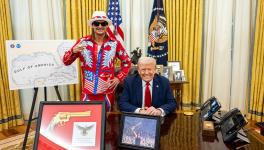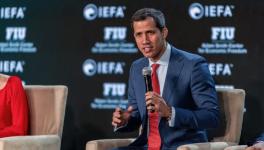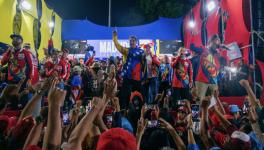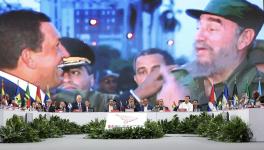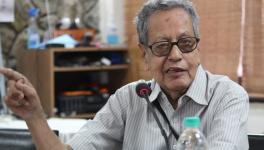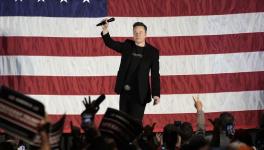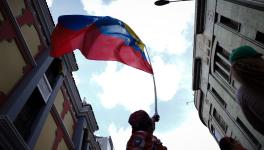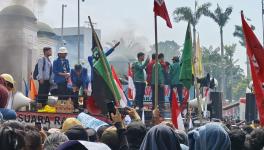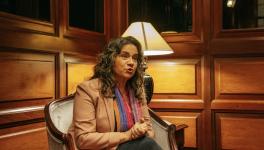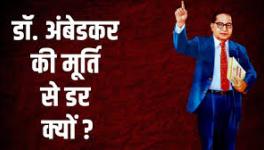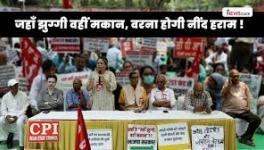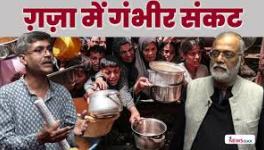Venezuela Decides to Hold Presidential Elections, the Opposition Chooses to Boycott Democracy
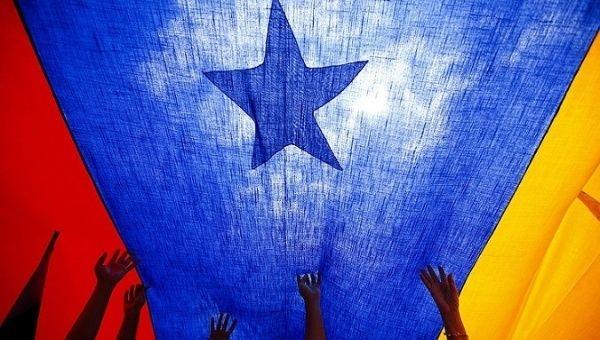
Maduro has announced his candidacy for a second term 2019-2025.
Venezuelan President Nicolas Maduro gave a media conference on Feb. 15 that brought us to date on the Venezuelan government’s position to several important events that have occurred recently.
The openness of the media conference could be inferred by the fact that Maduro gave a very short introduction and immediately allowed questions from reporters. The first two reporters to ask questions were one from the Washington Post and another from Reuters. At the time of writing I have not seen reports from those outlets. But the content of what Maduro had to say was more important.
Some observers have reacted to Maduro’s announcement that he will attend the Summit of the Americas in Lima in April “come rain, thunder or lightning!" despite the unwelcome message by Peru. That is sensational news that has gained him the label of “party crasher.” However, Maduro’s confirmation of holding early elections is more deserving of attention for its relevance to all Venezuelans, for the immediate future of the country and possibly the region, and for all those who believe in democracy.
The stalled dialogue by the Venezuelan opposition in the Dominican Republic did not stop Maduro from unilaterally signing the agreement with the terms agreed on. This allowed the National Electoral Council, CNE, to announce the date established in the agreement for April 22 of this year.
Maduro has announced his candidacy for a second term 2019-2025. He stressed that he offered to achieve peace with the National Constituent Assembly and peace was achieved. “Now,” he said, “I offer to get out of the economic war and achieve [economic] recovery after the elections.”
But the Venezuelan opposition is seriously divided and cannot agree on an electoral tactic much less a platform other then getting rid of Maduro. Seemingly, they are caught between two not edifying alternatives. One is participating in the elections with the fear of being defeated by what appears to be a large support for the governing party, and then having to claim electoral fraud repeating the pattern of past elections. The other alternative is not participating and pre-empt the whole process with claims that the elections will be fraudulent. This can only be construed as a boycott.
The latter seems to prevail at this time as it coincides with the U.S. position of not recognizing the Venezuelan elections results. The Canadian government seems to be on the same page.
On Feb. 14, Foreign Minister Chrystia Freeland echoed the statement by the Lima Group from the day before by saying, “We maintain our demand that presidential elections be called with sufficient advance notice, that international observers participate, and that all Venezuelan political players be included in the election. With these conditions unmet, Venezuela’s elections will lack any legitimacy or credibility.”
Maduro addressed those same points in his media conference. On the elections being called with “sufficient advance notice," he stressed that the date was agreed on with the opposition in the unsigned agreement.
On the issue of international observers, he also seemed to refer to the unsigned document and said, “We have given all guarantees to the opposition for the upcoming electoral process, including a U.N. mission of observers.” On Feb. 8 he had already posted a wider invitation to international observers on Twitter: “Venezuela is open to every necessary guarantee and welcomes every international observer willing to come. More than to inspect, they will be able to learn from the flawless electoral system we've built”.
On the last point of the Lima Group, that “all Venezuelan political players be included in the election,” Maduro spoke quite at length. He stated that the Lima Group “does not want elections," but he was unequivocally adamant on the fact that “there will be elections with or without the opposition.”
“We have a debt with Hugo Chavez,” he said.
To the Venezuelans abroad he reminded them that the National Electoral Council has extended the time to register to vote in their consulates until Feb. 25. Ironically, if those voters would want to vote against Maduro, they will not be able to do so without their opposition candidates.
Having said that, there are some smaller opposition parties that are participating in the elections. But those do not question the democratic process in place now, nor are the ones that are receiving the support from the U.S. and Canada. On the contrary they are ignored.
In a clear sign of confidence Maduro added that he hopes the opposition would participate with a single coalition candidate suggesting his desire to have a real match of political forces. He called on specific opposition leaders like Henry Ramos Allup of the Democratic Action party, Henri Falcon of the Progressive Advance party and Claudio Fermin, an independent, to register.
To the question of what will happen to the opposition, Maduro said, “Now the opposition does not know what to do because it depends on its foreign masters.” More explicitly he stated, “Only Washington knows. That’s the truth.”
Indeed, beyond the confusion of the Venezuelan opposition in disarray, and the obvious questionable interference by foreign governments in the internal affairs of a sovereign country, the greatest harm is being inflicted against the notion of democracy. Is abstention to participate in an electoral process, and claim fraud before the facts, contributing to democracy? Is encouraging abstention to participate in elections not a form of boycott of democracy and of holding the country hostage?
In 2018, there will be seven presidential elections in Latin America – a region of constant political changes, social unrest, resistance and resilience. Honduras has recently had turbulent elections with a lot to be questioned about “legitimacy or credibility.” No international voices were raised or sanctions slapped on the country.
Is the final message that some elections are more “democratic” than others? Do Latin American countries need Washington’s stamp of approval on when and how to hold elections despite all the assurances to abide to democratic process? The majority of Latin Americans are saying a resounding “No” if we care to listen.
Disclaimer: The views expressed here are the author's personal views, and do not necessarily represent the views of Newsclick.
Get the latest reports & analysis with people's perspective on Protests, movements & deep analytical videos, discussions of the current affairs in your Telegram app. Subscribe to NewsClick's Telegram channel & get Real-Time updates on stories, as they get published on our website.










